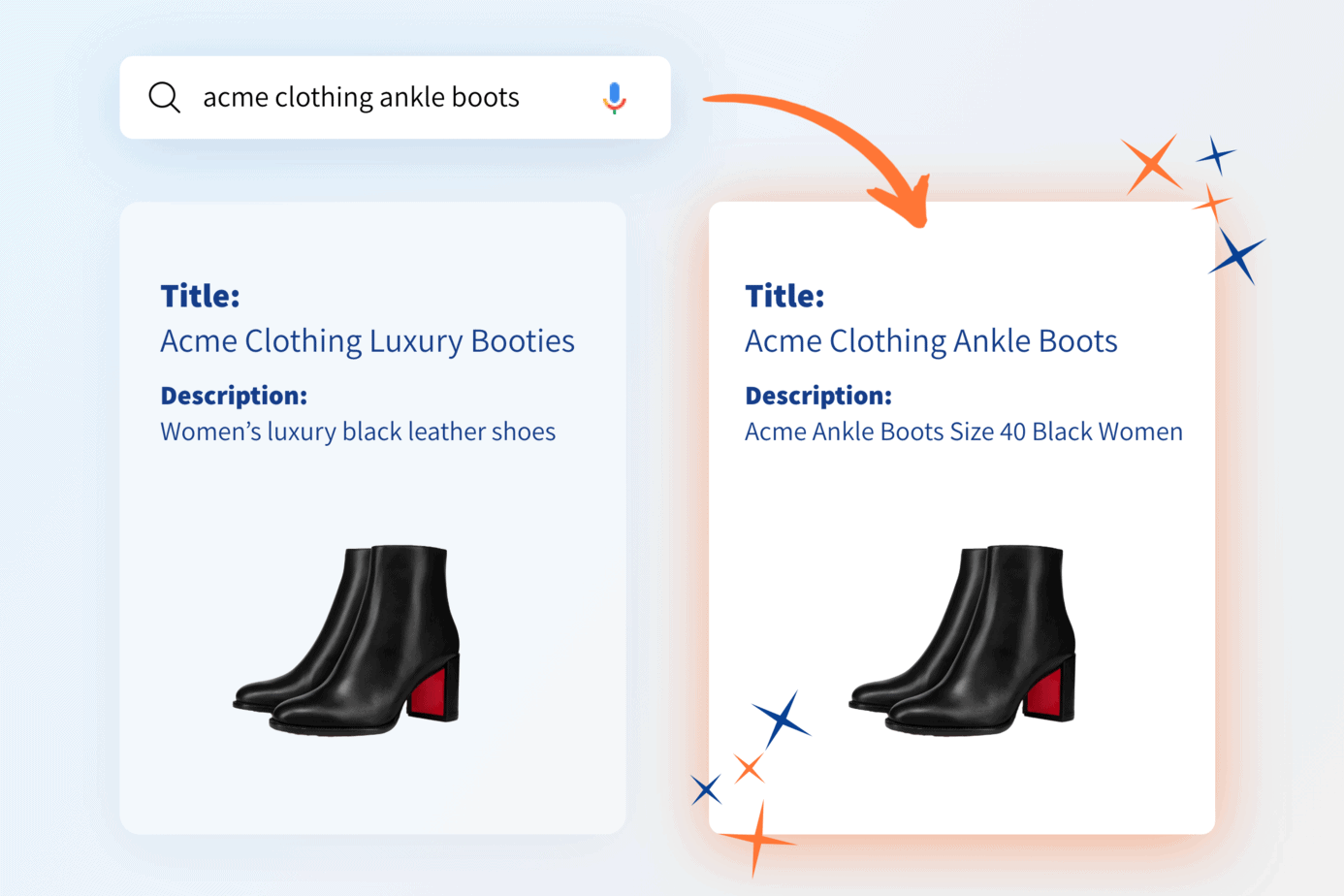Did you know that 44% of online shoppers start their buying journey with a search engine? This staggering statistic highlights the importance of having well-optimized product pages. In the competitive world of e-commerce, optimizing your product pages for SEO can be the difference between a sale and a missed opportunity. Let's dive into the essential strategies to boost your e-commerce sales through effective SEO.
1. Crafting Compelling Product Titles and Descriptions
Why It Matters
The product title and description are often the first things potential customers see. They need to be both enticing and optimized for search engines.
Key Strategies
- Use Long-Tail Keywords: Include specific keywords that customers are likely to search for. For example, instead of "running shoes," use "men's lightweight running shoes."
- Highlight Key Features: Clearly describe the product’s main features and benefits.
- Unique Descriptions: Avoid using manufacturer descriptions. Write unique, engaging content that speaks directly to your audience.

2. High-Quality Images and Videos
Enhancing User Experience
Visual content is crucial for e-commerce. High-quality images and videos can significantly improve user engagement and conversion rates.
Best Practices
- Multiple Angles: Provide images from different angles.
- Zoom Functionality: Allow users to zoom in on images to see details.
- Video Demonstrations: Include videos that show the product in use.
3. Utilizing Meta Tags Effectively
Boosting Visibility
Meta tags, including title tags and meta descriptions, play a significant role in SEO. They help search engines understand your content and can improve click-through rates.
Key Tips
- Title Tags: Include primary keywords and keep it under 60 characters.
- Meta Descriptions: Summarize the product in a compelling way, using keywords, and keep it under 160 characters.
- Alt Text for Images: Describe your images with relevant keywords to help with image search results.
For more on meta tags, check out our blog: Meta Tags Explained: Key to Effective SEO | A2Z Media.
4. Implementing Structured Data
Why Structured Data?
Structured data helps search engines understand your product pages better, leading to rich snippets in search results. These snippets can increase your click-through rates.
Types of Structured Data
- Product Markup: Include product name, description, price, availability, and review ratings.
- Review Markup: Show star ratings in search results.
- Breadcrumbs Markup: Helps users navigate your site and improves site structure.
5. Encouraging Customer Reviews
Building Trust and SEO Value
Customer reviews not only build trust but also add fresh content to your product pages, which is beneficial for SEO.
Effective Strategies
- Easy Review Process: Simplify the review submission process.
- Incentivize Reviews: Offer discounts or loyalty points for reviews.
- Respond to Reviews: Engage with customers by responding to reviews, showing you value their feedback.

Conclusion: Enhancing Your E-commerce SEO Strategy
Optimizing your product pages for SEO is a crucial step in boosting your e-commerce sales. By focusing on well-crafted titles and descriptions, high-quality images and videos, effective use of meta tags, implementing structured data, and encouraging customer reviews, you can significantly improve your online visibility and user engagement.
For more foundational SEO tips, visit our blog: Optimizing for Search: Basic SEO Guide.
Additionally, consider exploring advanced techniques in our other articles such as 10 SEO Blog Post Tips to Boost Your Website's Ranking and Beyond Basics: Customized SEO Techniques for Strategic Growth.
Investing time and effort into SEO can lead to higher rankings, more traffic, and ultimately, more sales. Start optimizing today and watch your e-commerce business thrive!




